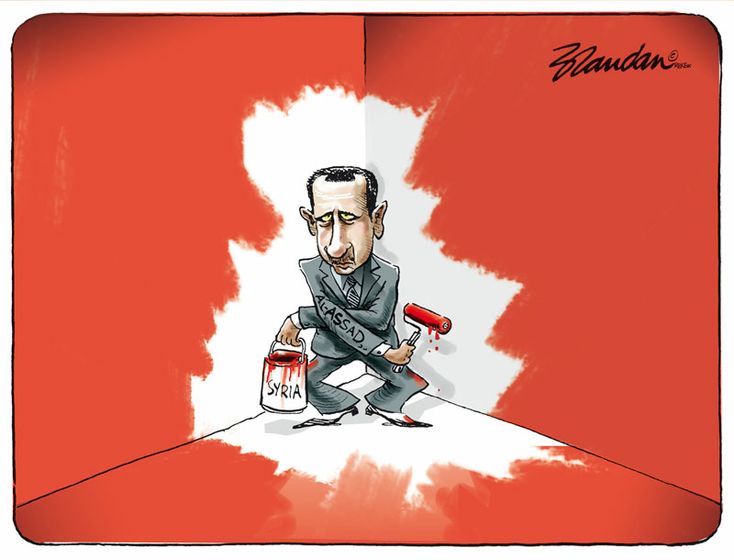Imagine, when Bashar al-Assad and his regime was
confronted with an uprising in early 2011, he could have
wisely stepped down, initiated a democratic  transition or negotiated a power-sharing agreement. He instead declared war on his own people, caused one of the largest refugee exodus in modern history, laid the foundation for radicalisation, indirectly gave birth to ISIS, lost half his territory to ISIS, killed hundreds of thousands of Syrians, lost the heritage of centuries, lost international legitimacy, opened up his government to interference from Russia and Iran (and the Gulf monarchies who exploited and supported his opponents).
transition or negotiated a power-sharing agreement. He instead declared war on his own people, caused one of the largest refugee exodus in modern history, laid the foundation for radicalisation, indirectly gave birth to ISIS, lost half his territory to ISIS, killed hundreds of thousands of Syrians, lost the heritage of centuries, lost international legitimacy, opened up his government to interference from Russia and Iran (and the Gulf monarchies who exploited and supported his opponents).
Not to mention the latest terror attacks, nothing certainly original, but the blood splattered in Ankara, Sinai, Beirut and Paris has a trail that, in part, goes back to the chaos in Syria.
It could have all been so different, and all this heartache and agony for what? Because Assad could not bring himself to, at the very least, sit at the same table with protest leaders and citizens during the honeymoon days of the Arab uprisings. No, he just could not do it. It was beneath him. Alas, power and privilege is so intoxicating that it makes you believe the price of civilisational collapse is worth it.






